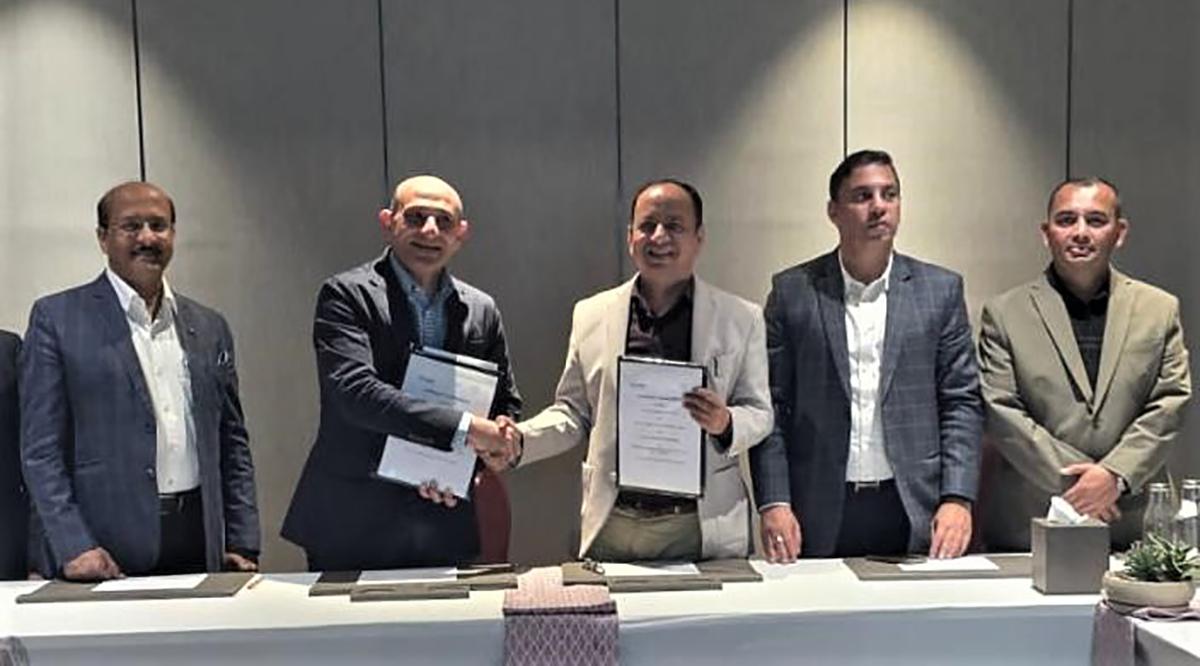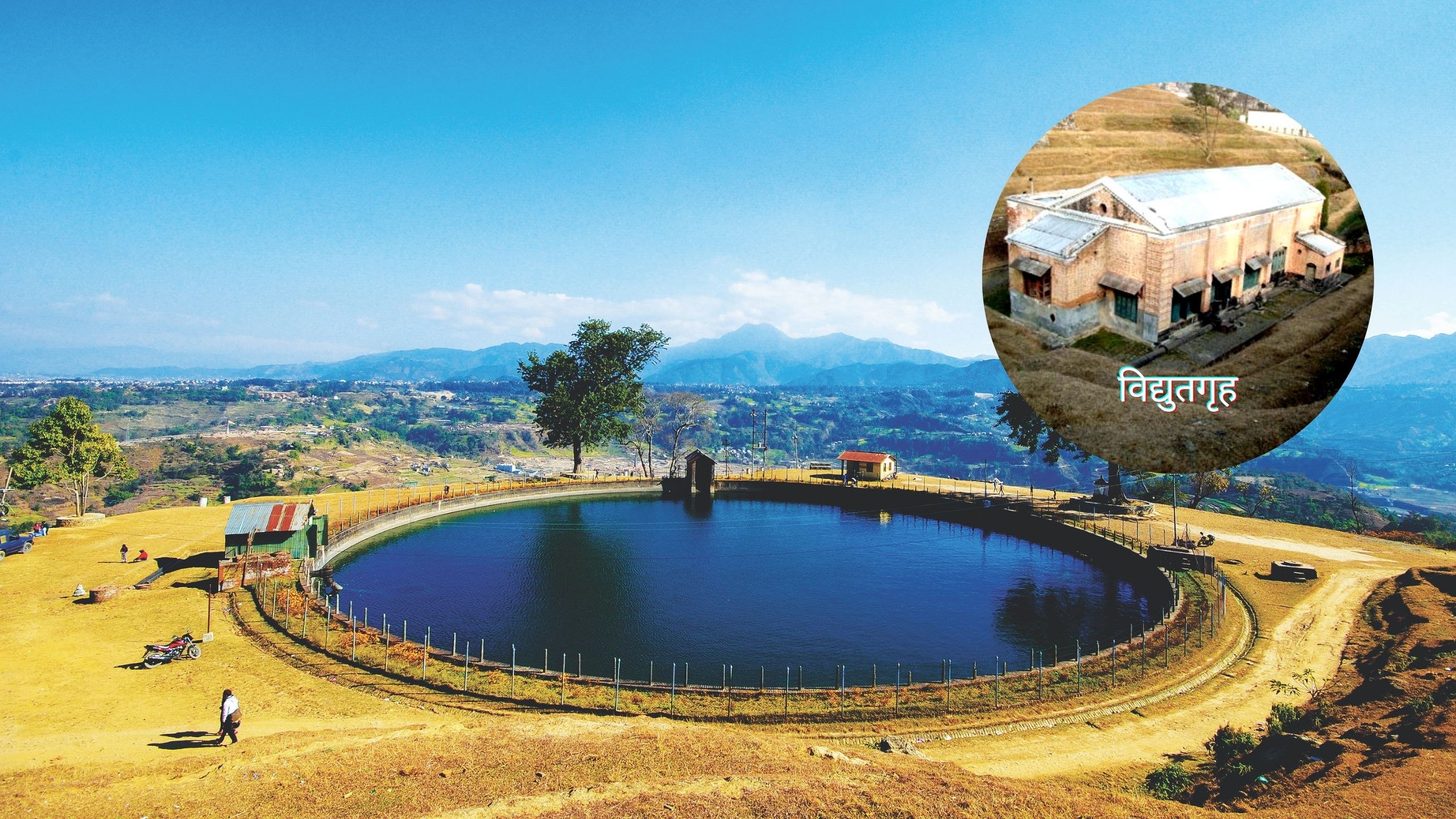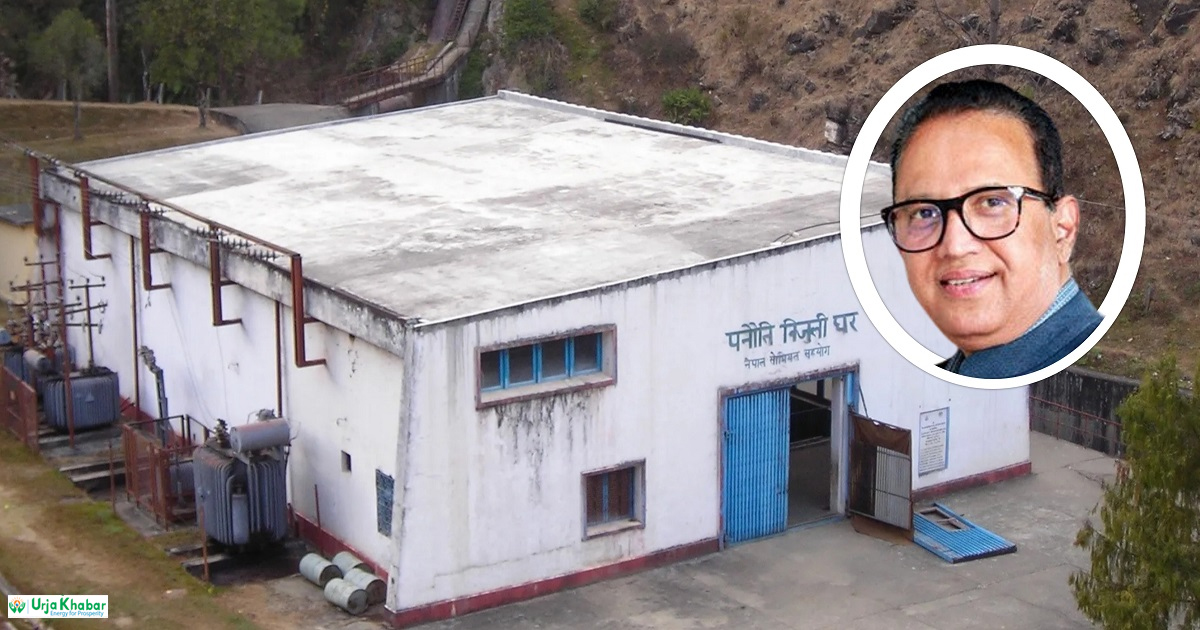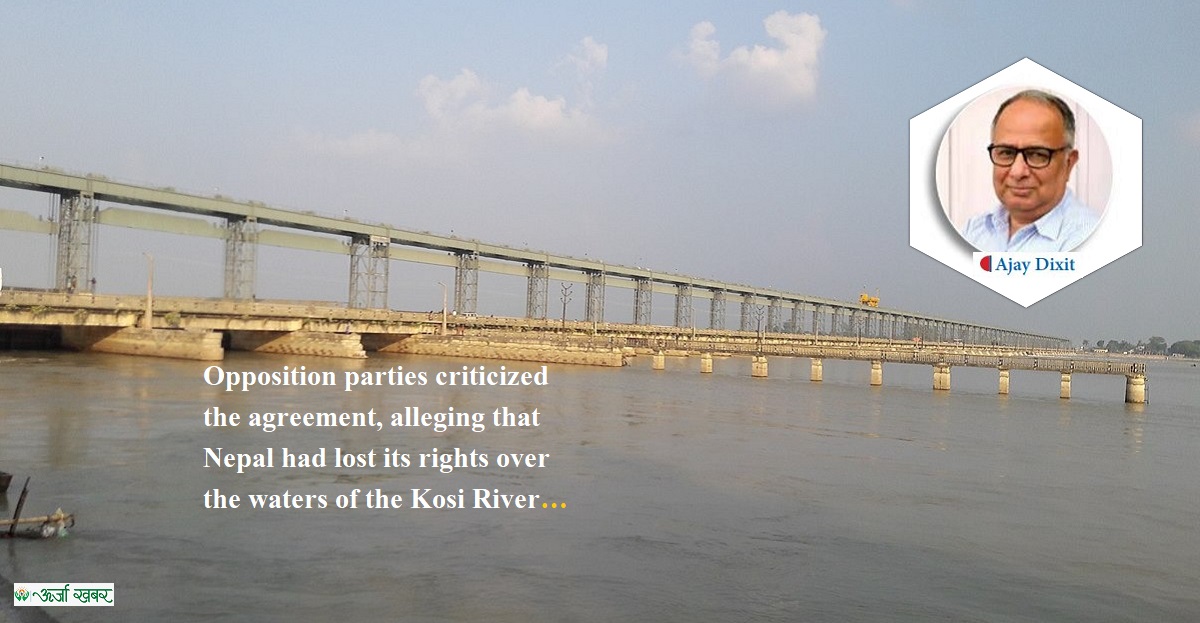Energy Update
Royal Expedition: A Journey Through Majestic Destinations
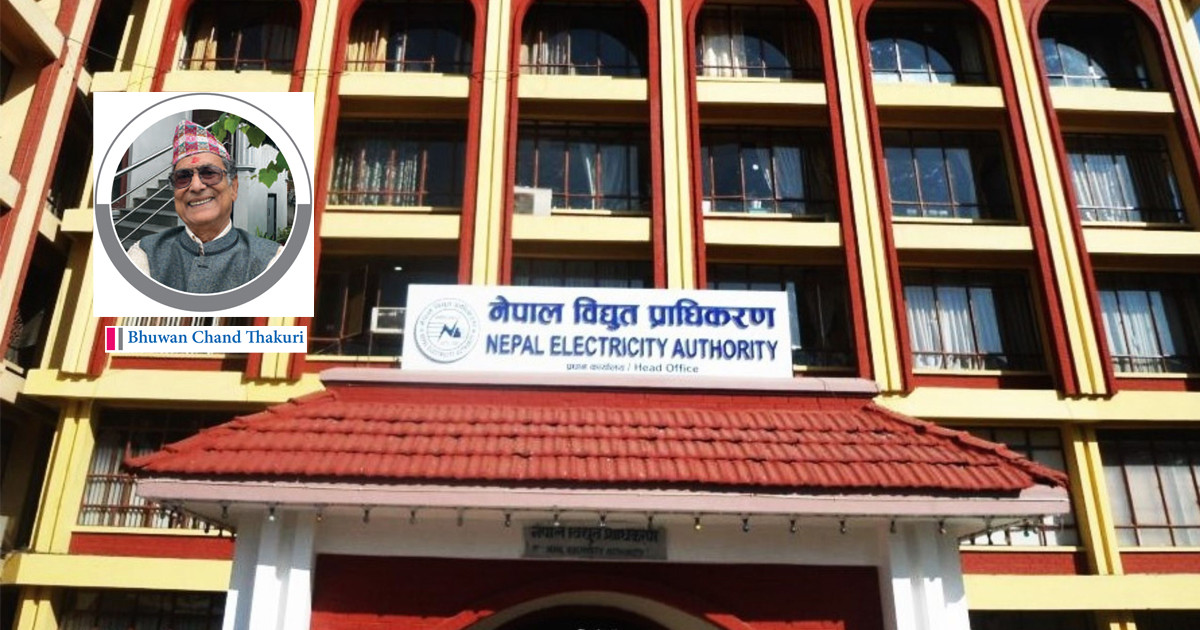
We had laid wooden beams on a damp wheat and installed five small diesel generators on top of them. We covered those generators (total capacity 15 KW) with a canvas roof and named this structure – Power House.
The covered with one-span-tall wheat plants, was guarded by royal soldiers armed with automatic weapons, stationed all around. Among 70 to 80 tents made from canvas that housed soldiers, royal secretaries, and courtiers, there was a tall enclosure made of the same canvas. Inside this enclosure were six additional tents. We called this enclosure the royal palace.

This was no joke. Inside that palace, His Majesty King Birendra Bir Bikram Shah Dev and some members of the royal family were actually residing. This was during King Birendra’s first travel camp to Dipayal in Poush 2038 (January 1982).
On the left bank of the Seti River lies a steep, tall cliff. Atop this cliff is a wide flat area. This space held not just farmland but also Dipayal’s airstrip. The camp was set up in the middle of the farmland. During the daytime, even in the cold month of Poush, the sun’s heat made one long for an umbrella. But at night, the cold drafts from the Seti River carryingicy water made it feel as if the body would shiver uncontrollably even under two blankets.

Among 70 to 80 tents made from canvas that housed soldiers, royal secretaries, and courtiers, there was a tall enclosure made of the same canvas. Inside this enclosure were six additional tents.
An Unusual Problem
It was three in the afternoon. All of us responsible for operating and maintaining the powerhouse—myself, a supervisor, and an electrician—were astonished to find that the outer bodies of all the generators had become electrified. We immediately began trying to resolve the issue, but identifying the cause proved to be a challenge.
The outer bodies of the generators had been separately grounded. We had attached wires to their outer parts, burying the wires deep into the ground with a metal plate. This setup ensures that any electricity leaking to the generator’s outer body would safely flow into the ground, preventing harm to humans.
The neutral line was also grounded, but disconnecting it didn’t solve the problem. When we touched a tester to the generator bodies, it still lit up fully, leaving us baffled. Just an hour earlier, our electrician had been shocked while touching one of the generators. Upon inspection, we realized all the generator bodies were electrified. Since then, we had been working tirelessly to solve the issue, but with no success. The situation was growing more perplexing.
When my central office assigned me to manage the electrical systems for this camp, I had initially tried every excuse to avoid the responsibility. However, I couldn’t refuse when the head of the Department of Electricity, Harsh Man Shrestha, personally summoned me.
“I selected you for Dipayal because of what I’ve heard about you,” he said. “You have considerable experience with diesel generators. Moreover, since you worked during the royal camp in Pokhara, you are familiar with these operations. For this camp, you’ll need to collect generators from various places, install them there, and stay on-site for one and a half months while the camp is active. Any breakdowns must be repaired immediately. That’s why I’ve chosen you.
When my central office assigned me to manage the electrical systems for this camp, I had initially tried every excuse to avoid the responsibility. However, I couldn’t refuse when the head of the Department of Electricity, Harsh Man Shrestha, personally summoned me.
”His tone carried more of a request than a command, so I decided to comply rather than make more excuses.
After two hours of continuous effort, we discovered that the current was coming from the ground itself—a surprising revelation. We had grounded the equipment to ensure safety, as any current leaking from the machines would flow harmlessly into the earth. But the opposite was happening: electricity was flowing from the ground to the machines.
Disconnecting the grounding wire stopped the electrification of the generator bodies, but reconnecting it made them live again. Measuring the voltage between each phase and the ground revealed slightly higher-than normal readings in two phases, but one phase showed a significantly lower voltage. This reminded me of a similar issue I had encountered at the diesel powerhouse in Pokhara. One of the phases seemed to have an unintended connection to the ground.
The affected phase supplied electricity exclusively to the royal palace. I suspected an issue within Near the powerhouse, I spotted a lieutenant. I explained my concern to him and asked for a way to enter the royal palace. Unfortunately, he had no solution either. “Why not check it tomorrow instead of now?” he suggested. “Tomorrow might be too late. the palace. Only three water heaters (geysers) were installed inside, apart from light bulbs. Of these, only one geyser, used by His Majesty, was active; the other two were disconnected as the King’s brothers, for whom they were intended, had not yet arrived.
The active geyser’s outer casing was grounded, so I suspected a potential current leak from its body. The area had seen light rainfall two days earlier, leaving the surrounding farmland and ground damp. If the King were to use the geyser to bathe, his wet body and slippers would increase the risk of an electric shock—potentially fatal.
A sense of fear gripped me. The King, who had gone out earlier, was expected to return shortly, and he might head straight to bathe upon arrival.
Although we were prohibited from entering the royal palace for maintenance—electrical work inside was handled by palace assigned electricians or army personnel—I had been allowed to inspect the wiring before the camp began. That’s how I knew about the geysers’ installation.
Who Can Give Orders to the King!
Near the powerhouse, I spotted a lieutenant. I explained my concern to him and asked for a way to enter the royal palace. Unfortunately, he had no solution either.
“Why not check it tomorrow instead of now?” he suggested.
“Tomorrow might be too late. If His Majesty (King Birendra) uses the geyser, he might get electrocuted,” I explained.
“Are you absolutely sure the current is leaking from the geyser?” he asked.
“It’s a possibility,” I replied. “But this concerns His Majesty’s safety. Leaving it unresolved until tomorrow would be irresponsible.”
The lieutenant picked up his walkie-talkie and spoke to a colonel. “The engineer for electricity wants to check something inside the palace. What should we do?”
The response was sharp: “Tomorrow. His Majesty is about to return from outside. Who would let him into the palace now?”
“His Majesty is likely to bathe upon his return, to wash off the dust of the day,” I said.
The thought made me sweat. I insisted again that entering the palace was urgent.
“Send him to me,” came the colonel’s command.
The lieutenant assigned a soldier to escort me. The soldier led me to the colonel, who turned out to be the security in-charge of the travel camp. I explained everything to him again, but he refused to allow me into the palace.
“Tomorrow,” he said firmly.
“In that case, please send a message asking His Majesty not to use the geyser until tomorrow,” I pleaded.
The colonel gave me a peculiar look. “Who can give such an order to His Majesty? Who can stop him?” he snapped.
I walked away, muttering to myself, Even if His Majesty skips bathing tonight, he will surely bathe tomorrow morning. If the worst happens, let it not be said that I didn’t warn them.
I turned back to add, “I’ve stated my concern. If any accident occurs by tomorrow, don’t say I didn’t warn you. I’ve fulfilled my duty. Besides, we’re not responsible for the electrical work inside the palace. Goodbye!”
I left after my final words, hoping for the best but unable to shake the fear of what might happen.
How Did I Get In?
I had barely taken a few steps away when the colonel’s voice called out, “Wait!”
He spoke into his walkie talkie, communicating with the King’s ADC (Aide-de Camp): “The engineer for electricity wants to enter the palace. He says it’s urgent. Let him explain himself there.”
“Send him,” came the immediate approval.
The colonel assigned two guards to accompany me. They escorted me a short distance before handing me over to another pair of guards, who led me closer to the palace.
As I walked, an uncomfortable feeling began to build inside me. What if nothing unusual was found? Not only would I become the subject of ridicule, but I might also face accusations of overstepping my authority. I had indirectly pressured the colonel, and if my concerns turned out to be baseless, it could result in severe consequences. There was a real risk of being expelled from the camp in disgrace the very next day. They could even question my intentions for insisting on entering the palace.
Despite the resistance I faced earlier, I had to be absolutely confident in my assumptions to justify my insistence on entering the royal tent. But now, uncertainty gripped me. With every step, I tried to prepare myself for whatever awaited me.
At the palace’s main gate, the King’s ADC was waiting. Dressed in an army uniform, revolver on his waist, and boots on his feet, he appeared ready for the King’s imminent return from his trip.
I had met him once before, during the initial inspection of the palace’s electrical system. That encounter left me with the impression that he was quick to understand matters.
I explained my suspicion to him, adding cautiously, “My assumption might be entirely wrong, but I took this step out of concern for His Majesty’s safety. Please forgive me if nothing unusual is found.”
I expected a thorough interrogation or at least a fullbody search before being allowed entry. However, his expression changed the moment he heard my explanation. He took me straight to the spot where geyser was installed without hesitation.
Was It a Conspiracy?
It was a small bathing cabin covered with tarpaulin, built on damp ground. Wooden planks with a rubber mat on top served as flooring. Two wooden poles supported a geyser, which was making an unusually loud noise, reminiscent of a steam engine.
“I’ve never heard a geyser make this kind of noise,” remarked the ADC, visibly puzzled.
“Neither have I,” I responded, equally astonished.
As we approached, we saw steam escaping from the geyser’s outer shell with a loud hiss. Its thermostat had likely failed, as it continued heating beyond its limit. A relief valve designed to release excess steam wasn’t likely functioning, the geyser had bursted.
Steam and water were dripping onto the electrical connections below the geyser, which were soaked through. Testing confirmed that the geyser’s outer shell, water pipes, and even the surrounding areas were electrified. I disconnected its power supply immediately. When I asked the power house team, they confirmed the electrical leakage issue had resolved. To ensure the diagnosis, I reconnected the geyser’s power, and the problem reappeared.
I cut the connection permanently and exited. Thus was averted what could have been a catastrophic accident. If I hadn’t insisted, the Colonel wouldn’t have allowed entry that day. He had planned to check the issue the next day during the King’s outdoor schedule.
“But there’s rubber matting and wooden flooring here. The King always wears slippers while bathing, doesn’t he? Couldn’t this prevent a shock, Engineer?” asked the ADC, seemingly more to reassure himself than to question.
“Dry conditions might not pose an immediate risk, but this is a bathing area. Once water seeps in, everything — the mat, wood, and slippers — will get soaked. Under such circumstances...” I let my sentence trail off deliberately. He understood and didn’t press further.
I inspected the other two geysers, which were new and fully functional. But what puzzled me was why the King’s geyser was so old and poorly maintained while the others were brand new. Was it because the King, known for his simplicity, never complained about using subpar equipment, or was it something more sinister?
When I exited the palace, another ADC, stationed at the main gate, stopped me. “What happened inside?” he asked curiously.
When I exited the palace, another ADC, stationed at the main gate, stopped me. “What happened inside?” he asked curiously.
All the officers had walkietalkies, so they were all aware of my request to enter the palace, which had clearly piqued their interest. I explained the situation, and he smiled, saying, “The King had express his concern this morning that there could be an electrical leakage somewhere here. Maybe it had already given him a mild shock?”
The geyser, in its precarious state, had likely been malfunctioning since that, escalating into a severe hazard by evening. No one had taken the King’s morning concerns seriously or …?
Soon after, the sound of a helicopter announced the King’s arrival. I looked up to see his white helicopter approaching. The work had been completed just in time.
The next morning, a new geyser arrived via plane.
The camp lasted for one and a half months. During this time, the diesel generators ran without interruption, ensuring a steady power supply. I expected my efforts to be recognized, especially given I had safeguarded the life of the nation’s highest authority.
However, when the names of awardees were announced after the completion of the camp, I was disappointed. My name wasn’t even mentioned. It appeared that the incident with the geyser and my role in preventing a disaster had been kept entirely under wraps, even from the King. Why?
This historical article is taken from Atitko Poko, a book by Bhuwan Chand Thakuri, former General Manager of the Nepal Electricity Authority. We have reproduced it from the 7th issue of Urja Khabar bi-annual magazine, published in January 2025.
Conversation

Bhuwan Chand Thakuri
Bhuwan Chand Thakuri is a former General Manager of the Nepal Electricity Authority.
- Info. Dept. Reg. No. : 254/073/74
- Telephone : +977-1-5321303
- Email : [email protected]






